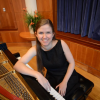Research Interests: Kant, Dostoevsky, Schweitzer, Gandhi; Problems of evil and violence; Theories of Values
Special Interests: National Chess Master and honorary member of Alpha Sigma Nu (2004-present)
Predrag Cicovacki is Professor of Philosophy and O'Leary Research Fellow at the College of the Holy Cross (USA). He has been teaching at Holy Cross since 1991. He also served as a visiting professor in Germany, Russia, Luxembourg, Serbia, and France.
Professor Cicovacki's areas of specialization are: problems of good and evil, violence and nonviolence, philosophy of war and peace, and ethics. His teaching and research is often focusing on the works of Kant, Hartmann, Schweitzer, Dostoevsky, Tolstoy, and Gandhi.
Professor Cicovacki's recently taught courses include: Gandhi's Way of Peace, Nonviolent Movements in the World, Philosophers on War and Peace, Introduction to Peace and Conflict Studies, Introduction to Philosophy, Philosophy and Literature, Philosophical Anthropology, Love and Wisdom, Reality and Utopia, Kant's Moral Philosophy, Globalization and Its Values, Theory of Value, Kant Seminar, Dostoevsky Seminar, Tolstoy Seminar, Seminar on Albert Schweitzer and Reverence for Life.
Professor Cicovacki published over 75 essays in various scholarly publications. These essays are published in, or translated into, English, Serbian, German, Russian, Slovenian, Chinese, and Japanese.
He is also author and editor of thirteen books, the latest of which are Dostoevsky and the Affirmation of Life (2012) and The Restoration of Albert Schweitzer's Ethical Vision (2012). He is editor of The Ethics of Nonviolence (2013). His forthcoming book (2014) is The Analysis of Wonder: An Introduction to Nicolai Hartmann's Philosophy, and he is currently preparing his own book on Gandhi ("Gandhi's Legacy") and editing a collection of essays on the practical application of nonviolence.
In the Fall-Winter 2012-13, Professor Cicovacki was a Senior Fulbright-Nehru Fellow at the Malaviya Centre for Peace Research, at Banares Hindu University, Varanasi, India. After his return from India, he was selected to be a Fulbright Peer Reviewer (India, Humanities; Fall 2013 - Summer 2016).
Since 2010, Cicovacki has been a Member of Global Research Team, Center for Global Nonkilling, at Honolulu, Hawai'i. Since June of 2013, he is a member of the Editorial Board of the international journal «Философия и культура» (Philosophy and Culture), published in Moscow, Russia, since 2006.
Source: College of the Holy Cross





